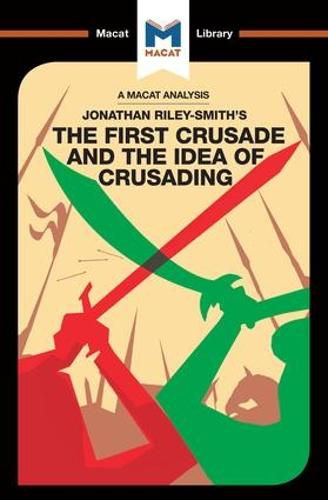Readings Newsletter
Become a Readings Member to make your shopping experience even easier.
Sign in or sign up for free!
You’re not far away from qualifying for FREE standard shipping within Australia
You’ve qualified for FREE standard shipping within Australia
The cart is loading…






Perhaps no work of history written in the 20th century has done more to undermine an existing consensus and cause its readers to re-evaluate their own preconceptions than has Jonathan Riley-Smith’s revisionist account of the motives of the first crusaders.
Riley-Smith’s thesis - based on extensive original research and firmly rooted in his refusal to uncritically accept the evidence or reasoning of earlier historians - is that the majority of the men who travelled to the east on crusade in the years 1098-1100 were primarily motivated by faith. This finding, which ran directly counter to at least four centuries of consensus that other motives, not least greed for land, were more important, has helped to stimulate exciting reappraisals of the whole crusading movement. Riley-Smith backed it up with forensic examination of the key crusader-inspiring speech delivered by Pope Urban II, looking to clarify the meanings of five competing contemporary accounts in order to understand how an initially simple, and rather confused, appeal for help became a sophisticated rationale for the concept of ‘just war.
$9.00 standard shipping within Australia
FREE standard shipping within Australia for orders over $100.00
Express & International shipping calculated at checkout
Perhaps no work of history written in the 20th century has done more to undermine an existing consensus and cause its readers to re-evaluate their own preconceptions than has Jonathan Riley-Smith’s revisionist account of the motives of the first crusaders.
Riley-Smith’s thesis - based on extensive original research and firmly rooted in his refusal to uncritically accept the evidence or reasoning of earlier historians - is that the majority of the men who travelled to the east on crusade in the years 1098-1100 were primarily motivated by faith. This finding, which ran directly counter to at least four centuries of consensus that other motives, not least greed for land, were more important, has helped to stimulate exciting reappraisals of the whole crusading movement. Riley-Smith backed it up with forensic examination of the key crusader-inspiring speech delivered by Pope Urban II, looking to clarify the meanings of five competing contemporary accounts in order to understand how an initially simple, and rather confused, appeal for help became a sophisticated rationale for the concept of ‘just war.